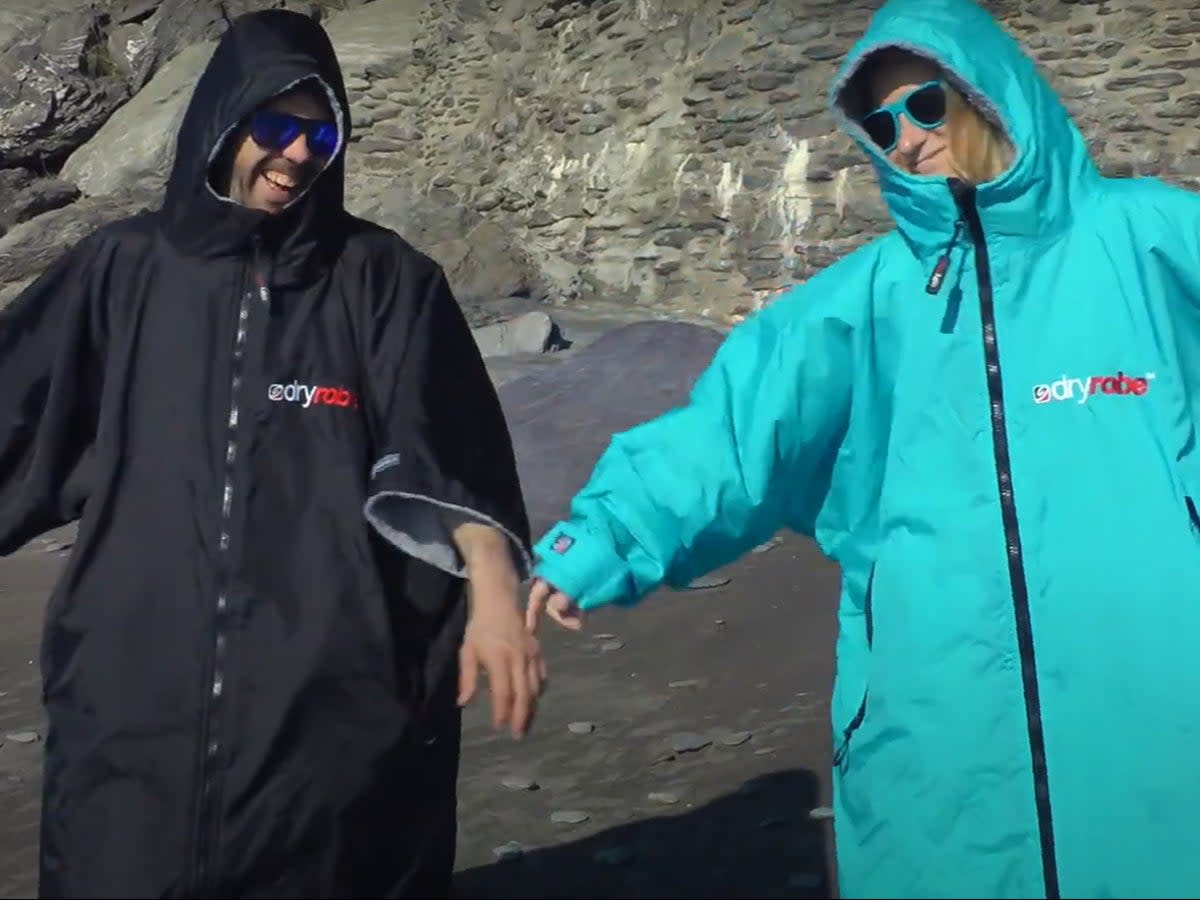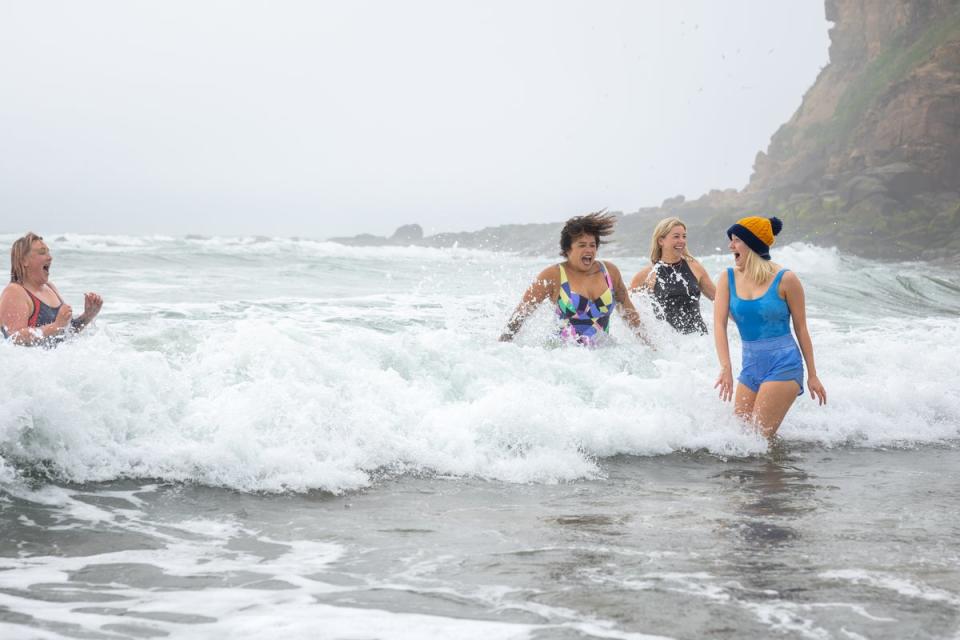Everyone needs to stop getting so angry about dryrobes

What is it about dryrobes that makes people so very angry? Just when you thought the court of public opinion couldn’t come down any harder on them, new depths have been plumbed. Alongside various scathing Tiktok videos, this week I saw an illustration of a woman wearing one on social media, shared as part of an artist’s thread entitled “irritating human behaviour pictures”. Captioned “Dryrobe on school run c***”, this particular practice was deemed as worthy of an Asbo as putting your feet up on train seats or having a personal conversation over speakerphone while out in public.
For the uninitiated, a dryrobe is a brand of outdoor changing robe. Akin to an oversized waterproof coat, with a fleece lining, hood and big pockets, it’s associated primarily with cold-water activities, such as wild swimming, kayaking or surfing. In a country as naturally chilly as the UK, the idea is that you can stay warm while changing into and out of swimwear or a wetsuit, and then continue to remain toasty afterwards. It doesn’t, on the face of it, sound like something to get particularly exercised or incensed about. It doesn’t, on the face of it, sound like something that would warrant you getting called the C-word. But people can always surprise you.
Somewhere along the line, dryrobes have become synonymous with a certain strain of middle-class smugness – a visible symbol that not only do you immerse yourself in cold water regularly enough to buy the expensive associated kit, but you also want the world and his wife to know about it. Hence the evolution of the dryrobe from a practical item seen almost exclusively on beaches and lakesides to a status symbol in its own right, donned by women (and it does always seem to be women) in the supermarket or at the Post Office or, indeed, on the school run.
I suppose it shares some of its DNA with the athleisurewear trend that led women who’ve never set foot in a gym to dress head to toe in lululemon while picking up a pint of milk. Such things become a “lifestyle” choice, a visual marker that you can afford to drop £88 on a pair of leggings without breaking a sweat, literally or metaphorically. But the level of pure, unadulterated hatred levelled at dryrobe wearers seems more pronounced and – to me at least – somewhat unreasonable.
I must be transparent here: as the owner of a dryrobe myself, I do have skin in the game. It was a joint gift from my mum and sister – you best believe that, at £165 a pop, this was not an item I was ever going to be purchasing for myself – and they gave it to me when I moved from the city to the coast. It was a purely practical present; I had big plans to swim in the sea year-round, and while having a dryrobe was by no means a prerequisite, I knew it would help in winter. I used to reserve a special kind of envy for the women I saw wearing them while tramping back up from the beach, their hair damp under bobble hats and complexions ruddy and emblazoned with euphoric smiles. I wanted nothing more than to be a member of this exquisitely warm, dry posse.

And here’s the thing: I have been “that” woman, the one who attracts so much ire. Not on the school run, admittedly – I have neither child nor car – but I have worn a dryrobe to the supermarket. To the Post Office. To meet a friend for coffee or lunch. On nearly all of these occasions, I had genuinely just been or was planning to go for a dip, making it a two birds, one stone outing (due to the aforementioned lack of car it’s far easier to double-up on activities once I’ve left the house). It doesn’t make any kind of sense to take out a dryrobe and a normal coat, and so the former doubles up as both. The same could surely be said for the much-maligned mum on the school run; unless there is physical evidence that she’s not about to take the plunge at her local reservoir once the kids are dropped off, who are we to judge?
But I’ll be real – it’s not always the case that swimming is on the agenda. Sometimes, as the warmest, most waterproof garment I own, the dryrobe makes the most practical sense. Not to mention the pockets (roomy enough to carry a purse, phone, keys, and entire book if you’re so minded!), the size (voluminous enough to be worn over the thickest cable-knit jumper!) and the hood (so roomy and watertight that there’s no need for an umbrella, baby!).
Somewhere along the line, dryrobes have become synonymous with a certain strain of middle-class smugness
The rest of my coats, which all cost significantly less, simply aren’t as high-functioning when the weather turns harsh. In fact, the dryrobe is the most expensive item of clothing in my entire wardrobe – in which case, doesn’t it make economic sense to get as much use out of the thing as possible, critics be damned?
I’m always wary of sweeping assumptions used to denigrate a group of people for sporting a particular item of clothing (unless it’s political – you can probably assume a certain amount about someone in a Maga hat). We can project as much as we like when we see someone in attire we deem “aspirational”, but we don’t really know their story; who they are and what their life looks like, or why they’re wearing it in the first place.
Haters gonna hate. Robers gonna robe. So call me a c*** if you must when you spot me stalking the aisles of Asda in my fury-inducing outerwear – but just know that, snug, cosy and unbeatably dry, I’m even smugger than you could possibly imagine.


